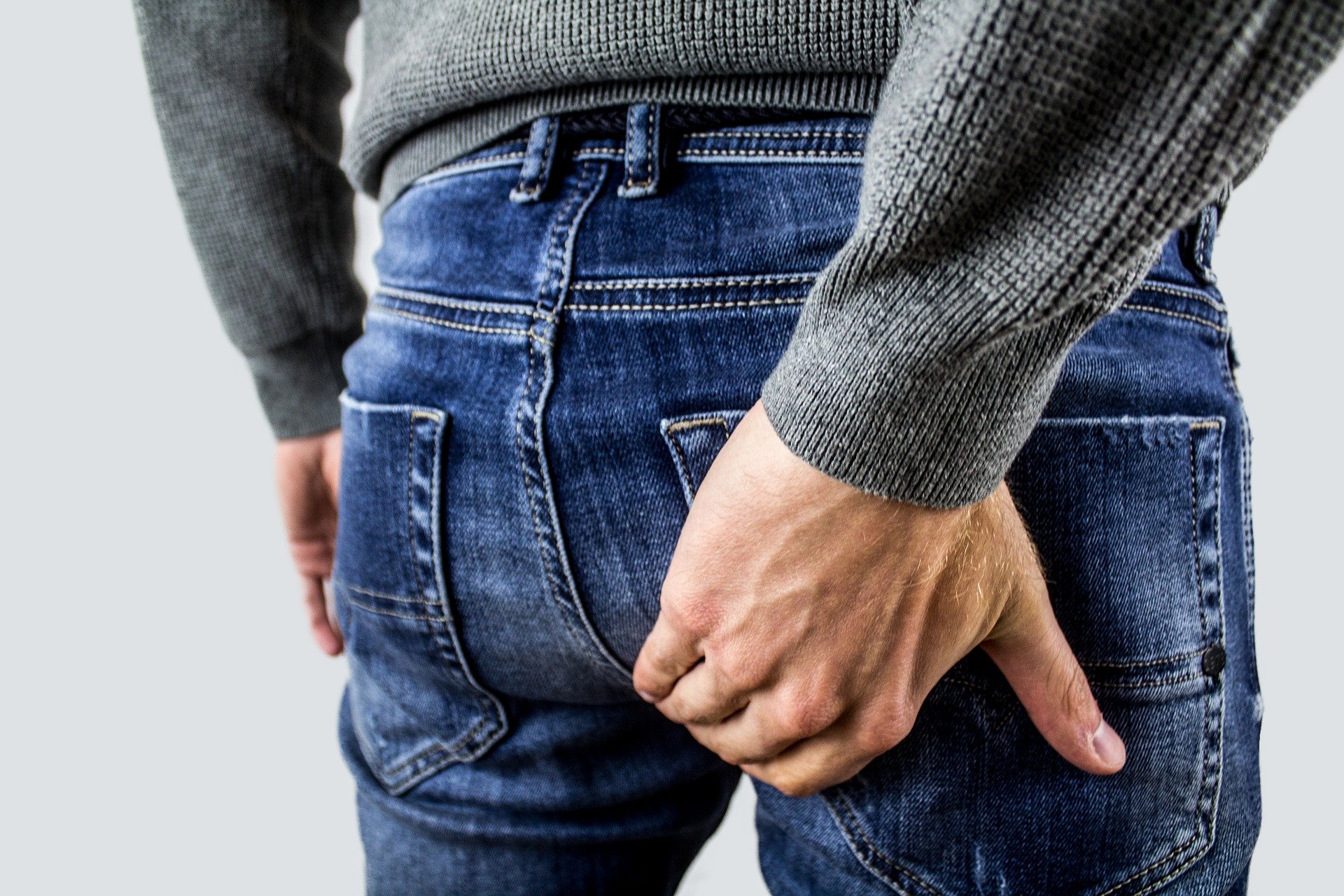Hemorrhoids, commonly known as piles, are inflamed veins in the lower part of someone’s rectum and anus. Sometimes the walls of these veins are stretched, and that part becomes irritated. In today’s article, we will tell you the causes, how long do hemorrhoids last, and the treatment.
Even though piles can be painful and unpleasant, they can be treated easily and are preventable. However, piles worsen after time, so you need to treat them as soon as the vessels appear.
Sometimes women develop piles when they are pregnant. During bowel movements, they might bleed.
However, it might clear up within a few days without any treatment; you need to see a doctor if it doesn’t.
The easiest way to treat piles is to change your diet.
Around 4.4 percent of the total population goes through piles once in their lifetime. However, it is more common for people who are between 45 to 65.
Table of Contents
Symptoms And How Long Do Hemorrhoids Last
If the veins are small, the symptoms will clear up in a few days, and no treatment is needed. Also, you might need to change few things in your lifestyle and diet.
Moreover, there are internal piles that might become big and stick out of the rectum. These types of piles are called prolapsed hemorrhoids. Also, they take more time to heal, and you might need treatment. If you think it is internal, then go to your doctor.
Also, when the internal hormones are pushed out of the anal opening, you might bleed during bowel movements. Some of the signs can be pain, lump, burning, discomfort, itching, and swelling.
Also, we said before some pregnant women develop piles. The main reason is due to the increased pressure in the stomach. This mainly happens during the third trimester, which makes the vessels in the anus and rectum bigger.
Sometimes pregnancy hormones might make the vessels swollen. If you get piles when you are pregnant, then the symptoms will last until the birth.
How long do hemorrhoids last if untreated?
If you want to know how long do hemorrhoids last, it lasts for about a week. Most of the time, you do not need to go to a doctor to treat it.
What causes hemorrhoids?
Some of the common causes of piles are as follows:
- Straining throughout the bowel movements
- Being overweight or obese
- Eating low fiber food all the time
- Sitting on the toilet for more than 30 minutes
- People who have chronic constipation or diarrhea
- Doing heavy lifting every day

How to diagnose hemorrhoids?
Now we know how long do hemorrhoids last; then, they should go away within a week. However, there are few cases where you need to see a doctor.
The doctor may see the external hemorrhoids, but internal hemorrhoids will include examing the rectum and anal canal.
Digital test
The doctor will insert a gloved and lubricated finger inside the rectum. They might feel something unusual like the growth of the vessels.
Visual checkup
sometimes the internal hemorrhoids are too soft, which might not be noticed during the rectal exam. Hence the doctor may inspect the lower part of the rectum and colon with a sigmoidoscope, anoscope, and proctoscope.
Furthermore, the doctor may want to check the entire colon while using colonoscopy if:
- Someone is middle-aged and didn’t do a colonoscopy recently
- The symptoms suggested that you probably have a different digestive system illness
- There might be a chance of colorectal cancer
Home remedies for hemorrhoids
Piles can be treated very easily, and a little change in lifestyle and diet can cure it. Most of the time, piles can be treated at home very easily:
#1 Foods contains high-fiber
Eat more vegetables, fruits, and whole grains. This will increase the bulk of the stool and soften it. Hence you can avoid straining during your bowel movements, which is one of the causes of piles.
#2 Warm Bath
Soak daily on a warm bath for 10 – 15 minutes. Try to do it 2 – 3 times a day when you have piles. You can even try to do a sitz bath as well.

#3 Topical creams
Topical creams that have hydrocortisone are great to use when you are suffering from piles. The area will become less irritated and itchy. Apply the cream twice a day, once in the morning and before going to sleep.
#4 Pain relievers
Ibuprofen or aspirin-like Motrin IB and Advil and acetaminophen like Tylenol can give you temporary relief from the pain.
If you do all of these regularly, then it will go away within 7 days. See a doctor if this continues more than a week or sooner when bleeding from the anal opening.
External hemorrhoid thrombectomy
Sometimes there might be thrombosis (blood clot) when someone is suffering from external piles. However, the doctor can remove it, which will give you relief. When the surgery is done, local anesthesia is used. It is best to do it within 72 hours after developing the blood clot.
If it is painful and bleeding from the region, the doctor will suggest doing invasive procedures. All of these are done at the doctor’s office and do not need anesthesia.
#1 Coagulation (laser, bipolar, or infrared)
These kinds of techniques use heat, infrared light, or laser. This will cause the small piles inside the rectum to shrink and harden. However, it does have some side effects, and you will feel uncomfortable when the procedure happens.
#2 Rubber band ligation
The doctor will place 2 – 3 small rubber bands at the base of the internal piles to cut off the circulation. Furthermore, this will weaken the piles, and within a week, it will fall off.
However, it is uncomfortable and might cause bleeding as well. This might happen after 3 – 4 days of the procedure, but it is not severe in most cases. Very rarely, some serious complications may occur; if it is the case, then talk to the doctor.
#3 Sclerotherapy (injection)
Sometimes the doctor might inject a chemical solution into the pile tissues. This will make them shrink. Even though the injection causes very little pain, it is not as effective as the rubber band ligation.
Surgery
A minimal amount of people who suffers from piles need surgery. That is if all the above treatments do not work for them:
#1 Hemorrhoidectomy
It is one of the most effective ways to treat recurring or severe piles. One of the side effects is that it might be difficult for you to empty the bladder. Due to this, urinary tract infections can happen.
#2 Hemorrhoid stapling
In this process, the doctor will stop the blood flow to the tissues. This is mostly done for internal hemorrhoids. Also, it is less painful than hemorrhoidectomy and has fewer cons.

Frequently Asked Questions (FAQs)
1. Do external hemorrhoids go away?
Most of the time, piles are minor and will go away on their own. But sometimes, it might need some home care treatment. In some extreme cases, you need the help of a doctor to take care of hemorrhoids.
If the piles are external, they do go away on their own most of the time. Avoid straining throughout the bowel movements; it will help reduce the development of any form of piles.
2. How long does hemorrhoid pain last?
In most cases, thrombosed piles should get better within a week or 10 days without any medical help or surgery. If you wonder how long do hemorrhoids last, they will most likely shrink in 7 days.
However, it might take a few weeks to completely go away if it forms a lump in some cases.
3. How long does it take for hemorrhoid to shrink?
At home, treating piles can shrink within a week. However, if it does not go away within a week, it is important to talk to a doctor.
The doctor might run some tests to see if there are any complications. Sometimes there can be a problem such as strangulated hemorrhoids or blood clots.
4. How to shrink external hemorrhoids in 48 hours?
One of the treatments that have been going on for decades is applying an ice pack. Hence a cold compress or ice pack will give you immediate comfort. It is a first-line defense and is safe to use.
Also, you can buy over-the-counter medicines that are safe as well. There are various creams, steroid treatments, ointments, and suppositories that can help reduce the piles. All of them are painless.
5. How to sleep with thrombosed hemorrhoids?
It depends on your sleeping position, and sometimes it is difficult to get any sleep due to the pain. You should wear loose pajamas and cotton undergarments.
Also, it is best to sleep on your belly to decrease anal pain. Moreover, if you move a lot when asleep, keep a pillow below the hips. This will prevent you from rolling to the side or sleeping on your back.
6. Can hemorrhoids last for months?
If you want to know how long do hemorrhoids last, they should shrink within a week with proper treatment. However, sometimes internal piles can take a month to go away.
Also, external piles tend to be itchy and painful, so you might need to take medicines to shrink them and reduce the symptoms.
7. Are Hemorrhoids Permanent?
Even though in some cases it can occur frequently, but it is generally not permanent. Also, if you have been dealing with pile issues for a long time, such as discomfort or bleeding, you should talk to your doctor and look for treatments.
8. How to remove external hemorrhoids at home?
Some of the easiest ways to remove it at home include high-fiber foods in your diet, such as vegetables, whole grains, and vegetables. Also, try to take a warm bath every day.
Find good tropical medicines. You can apply over-the-counter ointments or a suppository that has hydrocortisone. Also, some pads have witch hazel or another numbing agent that will relieve the pain.
9. What to eat when one is suffering from Hemorrhoids?
Consuming high fiber foods such as whole grains can ease your symptoms of piles like swelling and pain. Also, these foods help to prevent piles by making the stool soft and bulky. Hence you do not need to strain during bowel movements which is one of the causes of piles. Moreover, once you include more high-fiber food, it will also decrease the risk of having acidity.
10. Can Hemorrhoids Be one of the Signs of Cancer?
Some of the internal hemorrhoids might cause bleeding from the anal opening during bowel movements. However, bleeding from the rectum area can be related to some types of cancer. Hence, if you have this type of bleeding, you need to see a doctor for treatment and diagnosis.
11. When should one talk to a doctor about piles?
You need to talk to a doctor about it if you are bleeding during a bowel movement. Also, medical care is needed if the veins do not shrink after 7 days of home care.
Moreover, seek instant medical care if you feel lightheadedness and have extreme rectal bleeding.
12. Do External Hemorrhoids Go Away on Their Own?
Most of the time, it goes away on its own if you do home care treatments. Most of the time in a week, it will go away.
However, if your external hemorrhoids are getting worse and are coming back after a few days of a gap, you need to talk to a doctor. The doctor might suggest you do hemorrhoids removal surgery.
13. Does it hurt during Hemorrhoid Removal Surgery?
Hemorrhoid removal surgery is a minor surgery that is not painful. Also, during the procedures, the doctor uses local anesthesia to numb the area.
Sometimes severe hemorrhoids can make you feel uncomfortable, such as hemorrhoidectomy. However, for most people, this type of surgery is not needed.
14. What Happens when Hemorrhoid Bursts?
When a vein bursts, then you will feel relief from the discomfort and pain. Also, when it happens, you might bleed from your rectum. So, keep that area clean to lessen the risk of any infection.
Final thoughts
If you wonder how long do hemorrhoids last, it goes away within a week to a maximum of 10 days. When you are suffering from piles, make sure you include many high-fiber foods in your daily routine.
Moreover, most of the time, no treatment is needed, and it goes away naturally. However, you can apply some topical cream to give some temporary relief.
If there is severe pain and bleeding, then it is necessary to talk to your doctor.

